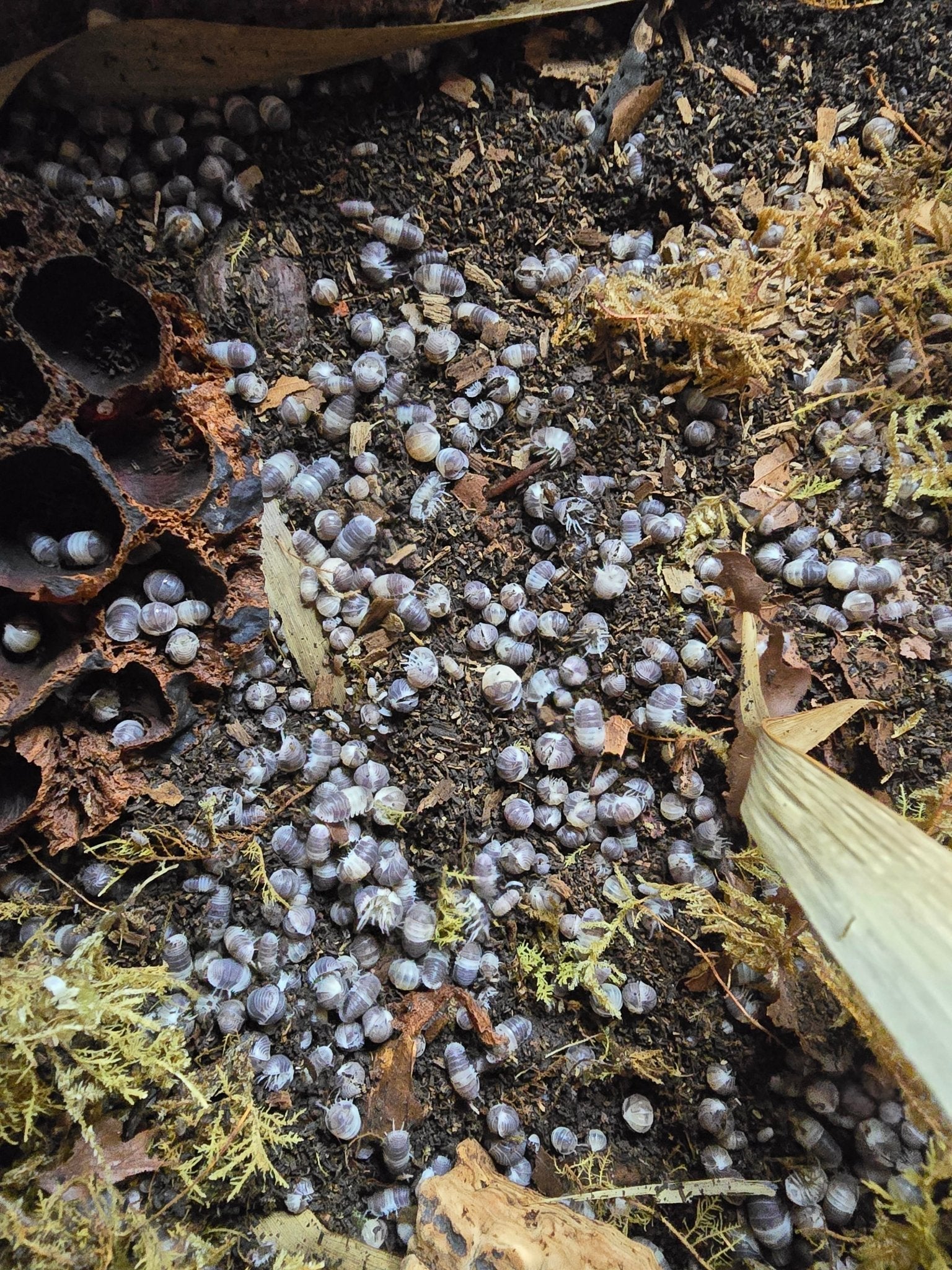Isopods, also known as pill bugs or woodlice, are fascinating creatures that provide numerous benefits to their owners. Not only do they serve as excellent clean-up crew members in terrariums and other enclosed environments, but isopods can also provide a rich source of calcium when supplemented with the proper nutrients. Providing proper nutrition, including calcium, is essential for their health and development.
Calcium is an essential mineral for both humans and animals, as it is responsible for the development and maintenance of strong bones and teeth. While many people associate calcium with dairy products, there are other sources of this vital nutrient that may be more appealing to those who avoid animal products.
For those who keep isopods as pets or use them in bioactive setups, providing calcium supplements can help ensure that these harmless creatures are fortified with the necessary nutrients to maintain optimal health. Isopods naturally require calcium to build their exoskeletons, and a lack of this valuable mineral can lead to deformities, stunted growth, and other health issues.
In nature, isopods obtain calcium through their diet, which typically consists of decaying wood and other organic materials. In captivity, it is important to supplement their diet with additional sources of calcium to ensure they are getting enough of this vital nutrient.
Some excellent sources of calcium for isopods include:
-
Crushed eggshells: Simply save your eggshells and crush them into small pieces. You can then sprinkle the eggshells over your isopods’ substrate or mix them into their food. Eggshells are the cheapest and most accessible calcium source for isopods, making them ideal for budget-conscious keepers.
-
Cuttlebone, limestone, and bones: These calcium-rich items can be added to the enclosure. Simply break off small pieces and place them in your isopods’ habitat.
-
Calcium powder: There are numerous calcium powders on the market that can be sprinkled over your isopods’ food or substrate. Look for powders that are specifically formulated for isopods to ensure that they are getting the appropriate levels of calcium.
Providing your isopods with adequate levels of calcium can have numerous benefits, including:
-
Improved growth rate: Isopods that are deficient in calcium may experience stunted growth or deformities. Adding calcium to their diet can help ensure that they grow and develop properly.
-
Stronger exoskeletons: Calcium is essential for the development and maintenance of isopod exoskeletons. A lack of this mineral can lead to weak or brittle shells that can easily be damaged or broken.
-
Better reproductive success: Isopods that are supplemented with calcium are more likely to reproduce successfully and produce healthy offspring. Calcium supplementation is especially important for breeding isopods and the healthy development of babies. This is particularly important for those who breed isopods for use in bioactive setups or other environments.
Offering a variety of calcium sources ensures proper nutrition for all isopod species, including those with specific needs. Keepers can offer these calcium sources in different ways, such as sprinkling, mixing, or placing items in the enclosure.
PostPods ensure all our isopods have a healthy diet supplemented with calcium to ensure each isopod is healthy and strong.
Importance and Sources of Calcium
Calcium is a vital component of an isopod’s diet, playing an essential role in the development and maintenance of their exoskeletons. Without enough calcium, isopods can experience deformities, stunted growth, and even fail to thrive in captivity. In the wild, isopods obtain calcium from a variety of sources, including leaf litter, limestone cliffs, and animal products such as bones and antlers. These natural sources of calcium carbonate help isopods build strong, healthy exoskeletons and support their overall development.
For those keeping isopods as pets, it’s important to replicate these natural sources within the enclosure. Limestone is a popular source of calcium carbonate and can be easily added to an isopod’s habitat. Animal products like crushed bones or antlers can also be offered as a supplement, providing an additional source of calcium. By ensuring your isopods have access to these essential nutrients, you help them grow, develop, and reproduce successfully, keeping your pets healthy and happy.
Providing a Balanced Diet
A balanced diet is key to keeping isopods healthy and ensuring they receive all the nutrients they need. In addition to staple foods like fruits, vegetables, and leaf litter, isopods require a steady supply of calcium to support the development of their exoskeletons. Cuttlebone, a popular source of calcium for many pets, can be placed directly in the isopod enclosure, allowing the animals to nibble on it as needed. Other sources, such as crushed eggshells and powdered calcium carbonate, can be sprinkled over their food or mixed into the substrate for easy access.
Offering a variety of food sources, including both plant matter and calcium-rich items, is essential for preventing nutritional deficiencies. By providing a diverse diet, you help your isopods stay active, grow properly, and maintain strong exoskeletons. Regularly rotating different sources of calcium and food ensures your isopods remain healthy and content in their environment.
Implementing Calcium Supplementation
Adding extra calcium to your isopod’s enclosure is simple and effective. One easy method is to sprinkle a small amount of calcium carbonate powder or finely crushed limestone directly onto the substrate or food. This provides a readily available source of calcium for your isopods to consume as needed. Cuttlebone, derived from cuttlefish, is another popular source of calcium and can be placed whole or in pieces within the enclosure for the isopods to access at any time.
When supplementing with calcium, it’s important to also provide a variety of other food sources, such as leaf litter, fruits, and vegetables, to maintain a balanced diet. Regularly check your isopods’ enclosure to ensure they are consuming the calcium sources and adjust the amount as needed to prevent deficiencies or excess. By making calcium supplementation a routine part of your isopod care, you help your pets thrive, prevent deformities, and support their overall health and development.









